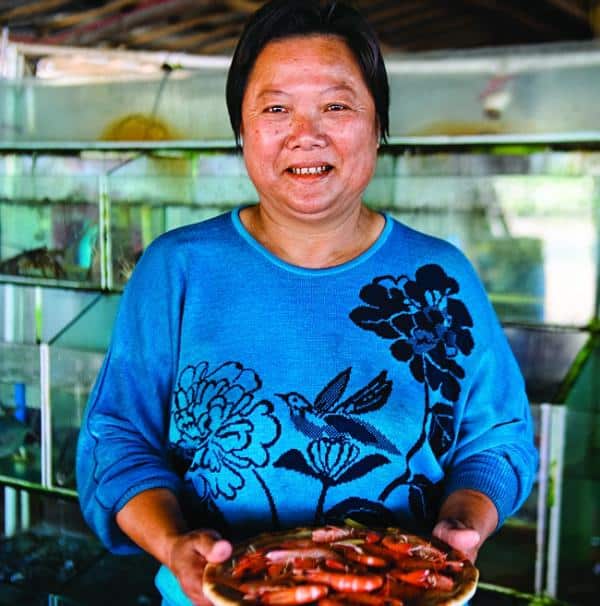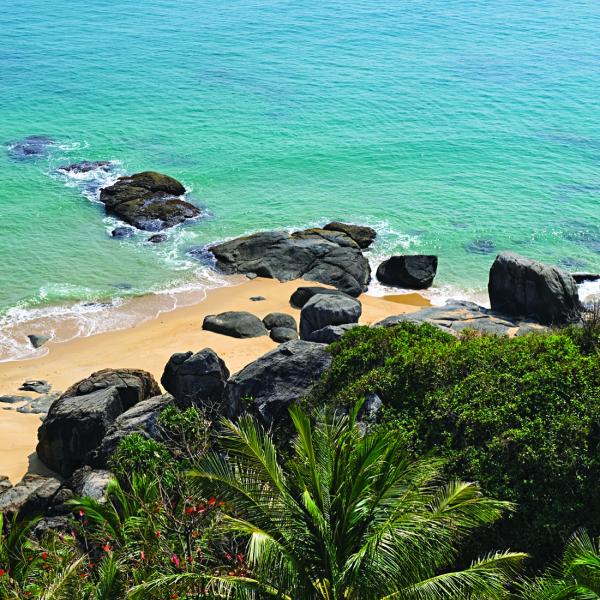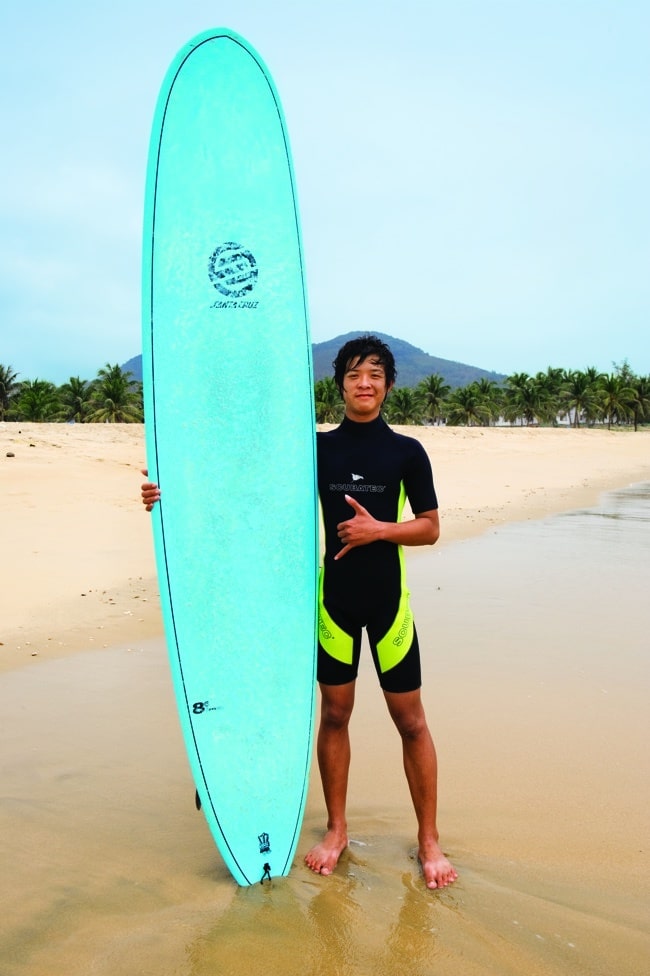The Next Wave: Big Buisness
"They just smell money," says Brendan Sheridan. He's explaining how an annual surf contest he started in 2009 attracted the attention of the Wanning government, the local municipality that governs Riyuewan. They contacted Brendan and said they wanted to put together a surfing festival in conjunction with his contest. The government organizers paved the road into town and hung huge surfing banners everywhere. They even confi scated Mama's six pigs that usually roam the beach. Mama was upset, but since the contest guaranteed more business for her family, she cooperated.
The event attracted thousands of spectators and garnered huge publicity within China. But perhaps more significant, the Surfing Hainan Open contest caught the eye of Beijing. Near the end of my stay, Brendan invites me to sit in on a lunch meeting with Pan Lei, the general manager of the Nanshan Group, a powerful real-estate developer in Wanning City. It turns out the Chinese government owns much of the waterfront land here, including the spot where Mama's sits (her family has been squatting here for years). The government recently contracted the Nanshan Group to redevelop the area as a water-sports destination.

Photo by: Alison Wright
As we share a table of Mama's seafood, Pan details how within the year they'll raze all the old structures (including Mama's) and erect hotels and shops, grandstands from which spectators can watch the surfing, and eventually a pair of artificial islands (one shaped like the sun, the other like a crescent moon). They plan a grand opening for January 2013, timed for the Chinese New Year tourist rush. "They want to make Riyuewan a water-sports park, just like a Disneyland," says Pan, through my local translator. "Not exactly like Disneyland, but everybody can do water sport and enjoying." "Disneyland," Pan chimes in with a big smile. "He said surfing has a very good future in China. This company and the government will focus on surfing development, so in the future, surfing is going to look really good." As the meeting goes on, Mama and her sons begin orbiting our table. Mama looks agitated. This isn't lost on Pan, so he calls out to her.
Soon their banter sounds like arguing. I ask my friend to translate. "He asks Mama if she wants to make restaurant in future he can just give Mama space for renting. But it looks like she is quite worried about paying more money." After the meeting, I ask her son Huang Ning what he thinks about the government's plans. "People, they think this is a very old village, but soon it's going to be a very modern one, a very young place," he says. "Of course there are going to be more people, but maybe it won't be as cool as it is now."

Photo by: Alison Wright
I can't help but feel sorry for Mama and her boys. How Riyuewan will be changed by developers, for better or worse, remains to be seen. But as sure as the waves roll in, one thing is clear: Surfi ng is here to stay. On my last morning, I spend hours riding shoulder-high waves with the local crew. Eventually, the sun hides behind the clouds and it gets a little chilly, so everybody heads in to warm up. That leaves me to surf happily alone once again, with no one but Mama's newly purchased passel of pigs watching me from the beach.
